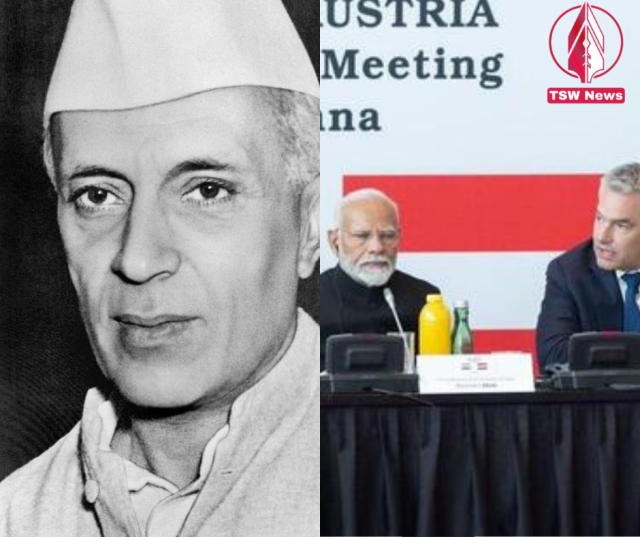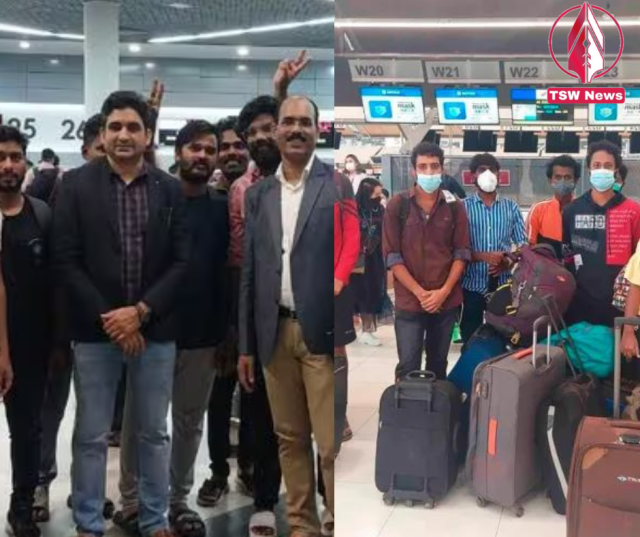In an interview with Austrian media, Chancellor Nehammer mentioned Nehru’s crucial role in Austria’s neutrality
- Posted on July 12, 2024
- News
- By Arijit Dutta
- 93 Views
Austrian Chancellor Karl Nehammer highlights Jawaharlal Nehru's crucial role in Austria's 1955 independence negotiations. Nehru's mediation with the Soviet Union helped break a diplomatic deadlock, leading to Austria's neutrality. This historical cooperation underscores enduring India-Austria relations.

In a major diplomatic revelation, the current Chancellor of Austria Karl Nehammer has provided out insights into how the First Prime Minister of India, Jawaharlal Nehru, helped Austria transform into a neutral and independent country in 1955.
Chancellor Nehammer shared an anecdote of a turning point in Austria’s history during a press briefing alongside the Indian Prime Minister Narendra Modi on Wednesday. He said that, when the negotiations on the Austrians’ independence in 1953 particularly, with USSR stagnated, the Austrian foreign minister Karl Gruber called on Prime Minister Nehru for help.
This way, India assisted Austria, and in 1955, the negotiations had a positive outcome that resulted in the Austrian State Treaty,” Nehammer said in the German language.
The Chancellor’s remarks paint a picture of diplomacy that is not very well known to the wider public, especially in the post second World War period. While the nation did have a provisional government after the war, Austria was occupied by the Allied powers of France, the Soviet Union, the United Kingdom, and the United States once Germany was defeated in May of 1945. The process of sovereignty was not an easy one and was marked by the Cold War events.
Nehru’s role was to intervene at a crucial time. Eyewitness testimonies by international and US diplomats and historians provided in newly declassified documents on the archives of US Department of State and Nehru’s and Gruber’s personal diaries and memoirs prove that Nehru met Gruber in Switzerland on June 20, 1953. Gruber proposed to Nehru the message to be delivered to the Soviet authorities: Austria’s readiness to adopt the policy of permanent neutrality through the Constitution.
The Indian leader’s additional work as a mediator also played a significant role in ending the deadlock with India’s neutral stance and friendly relations with the Soviet Union. This diplomacy helped shape the Moscow Memorandum of 1955 as well as led to the signing of the Austrian State Treaty.
Indeed, as Austria’s Chancellor Bruno Kreisky said once that “The name of Nehru will remain eternally associated with the history of our neutrality”.
This historical cooperation is acknowledged by Chancellor Nehammer at the time when Austria aims at becoming a ‘mediator’ in present day conflicts particularly the Ukraine issue. Nehammer stressed that Austria is a neutral country within the EU but outside NATO, so Vienna can be the platform for such a conversation.
Accepting this fact also serves to underscore a critical phase in Austria’s struggle to attain sovereignty while also revealing the long-term implications of India’s initial foray into international diplomacy under the stewardship of Jawaharlal Nehru.
Also Read: India and Austria steps forward to call for peace in Ukraine
As the diplomatic relations between India and Austria progress, such accounts remain an important part of understanding the historical background of the two countries, their support for one another, and collaboration in diplomacy.




